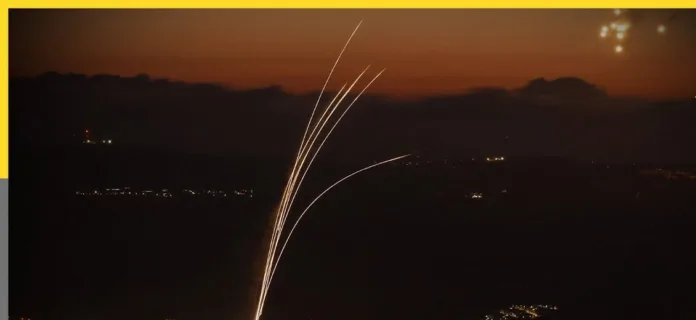Israel’s targeted strikes on suspected Hezbollah positions lead to significant civilian casualties, sparking international concern
On August 23, 2024, Israeli air strikes hit several towns in southern Lebanon, leading to the deaths of at least eight individuals, including one child. The strikes were part of Israel’s ongoing operations against Hezbollah, a group the Israeli government has accused of operating from these areas.
The Israeli military released footage of one of the strikes, claiming it was aimed at a Hezbollah cell involved in attacks against Israeli targets. According to Israeli officials, the operation was conducted in response to recent escalations along the northern border, where Hezbollah and other militant groups have been increasingly active.
The affected towns, including Qana and Tyre, have experienced heavy damage, with residential areas and infrastructure hit. Reports indicate that the strikes have caused significant disruption to local communities, with emergency services struggling to manage the aftermath.
The Israeli Defense Forces (IDF) have stated that they take every precaution to avoid civilian casualties, but their operations are focused on eliminating what they describe as imminent threats from Hezbollah. The IDF’s approach has drawn criticism from various international human rights organizations, which have called for a thorough investigation into the strikes’ impact on civilians.
Local authorities in southern Lebanon have condemned the attacks, describing them as a violation of international law and an escalation of hostilities. They have called for an immediate cessation of the strikes and for the international community to intervene to prevent further loss of life.
In the aftermath of the air strikes, the affected communities are facing a humanitarian crisis. Many families have been displaced, and essential services have been severely disrupted. Humanitarian organizations are working to provide aid to those affected, but the scale of the damage presents significant challenges.
The strikes come amid heightened tensions in the region, with ongoing clashes between Israeli forces and Hezbollah fighters. The situation remains fluid, and the potential for further escalation is high as both sides exchange fire and political leaders assess their responses.
Analysis:
Political Perspective: The Israeli air strikes on southern Lebanon represent a significant escalation in the ongoing conflict with Hezbollah. Politically, these strikes underscore Israel’s commitment to countering what it perceives as a direct threat from Hezbollah. However, they also risk further straining relations between Israel and Lebanon, as well as impacting broader regional stability. The international community may respond with calls for restraint and renewed diplomatic efforts to address the underlying issues driving the conflict.
Social Perspective: The strikes have deep social implications for the residents of southern Lebanon. The loss of civilian lives, including that of a child, highlights the tragic human cost of the conflict. The disruption to daily life, displacement of families, and damage to infrastructure contribute to a growing humanitarian crisis. Socially, these events may heighten tensions within Lebanon and among Lebanese communities, increasing support for resistance against Israeli actions and exacerbating internal divisions.
Racial Perspective: The racial dimensions of the conflict are less pronounced in this context but still relevant. The strikes reflect broader ethnic and nationalistic tensions between Israelis and Lebanese, with Hezbollah representing a significant political and militant force within the Arab community. The impact of such strikes on ethnic and national identities may influence both domestic and international perceptions of the conflict.
Gender Perspective: The impact on gender dynamics in the affected areas is significant. Women and children are often disproportionately affected by conflict, facing increased risks of violence, displacement, and disruption to their lives. The death of a child in the strikes underscores the severe impact on families, with women and caregivers bearing the brunt of the humanitarian crisis and reconstruction efforts.
Economic Perspective: Economically, the air strikes have immediate and long-term implications. The destruction of infrastructure and residential areas disrupts local economies, hampers recovery efforts, and increases the financial burden on humanitarian organizations. The broader economic impact includes potential disruptions to trade and investment in the region, further exacerbating the economic challenges faced by Lebanon and its neighbours.
